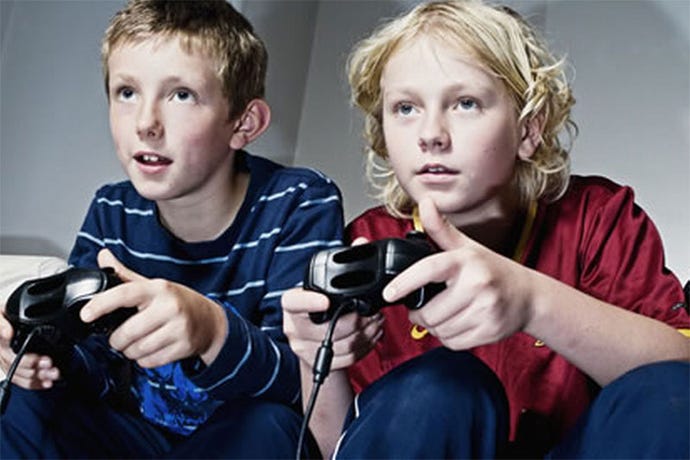American Academy of Pediatrics ditches limited screen time policies
Trying to raise your kids with little or no screen time? It's a nightmare, isn't it.
Back in 2011, the American Academy of Pediatrics released a set of guidelines aimed at advising parents on how to manage their children's technology use. The famous policy, drafted before the release of the first iPad, advised parents to limit children's screen time to two hours per day, and to avoid screens completely for children under two years of age.
Following an invitation-only symposium earlier this year, the organisation seems to have completely thrown out the old policy in favour of encouraging parents to co-view passive media with very young children, and to play video games with children of all ages, because "family participation with media facilitates social interactions and learning".
"In a world where “screen time” is becoming simply “time,” our policies must evolve or become obsolete," the AAP said in a blog post announcing its new recommendations for parents.
"Digital life begins at a young age, and so must parental guidance. Children who are 'growing up digital' should learn healthy concepts of digital citizenship."
Here are the AAP's new, more flexible and nuanced guidelines. It's perhaps not as simple as "no TV for you", but in other ways it's going to be a lot easier to enforce, as anybody whose kids are livid about not being able to watch Peppa Pig (or whatever) will tell you.
- Media is just another environment. Children do the same things they have always done, only virtually. Like any environment, media can have positive and negative effects.
- Parenting has not changed. The same parenting rules apply to your children’s real and virtual environments. Play with them. Set limits; kids need and expect them. Teach kindness. Be involved. Know their friends and where they are going with them.
- Role modeling is critical. Limit your own media use, and model online etiquette. Attentive parenting requires face time away from screens.
- We learn from each other. Neuroscience research shows that very young children learn best via two-way communication. “Talk time” between caregiver and child remains critical for language development. Passive video presentations do not lead to language learning in infants and young toddlers. The more media engender live interactions, the more educational value they may hold (e.g., a toddler chatting by video with a parent who is traveling). Optimal educational media opportunities begin after age 2, when media may play a role in bridging the learning achievement gap.
- Content matters. The quality of content is more important than the platform or time spent with media. Prioritize how your child spends his time rather than just setting a timer.
- Curation helps. More than 80,000 apps are labeled as educational, but little research validates their quality (Hirsh-Pasek KPsych Science2015;16:3-34). An interactive product requires more than “pushing and swiping” to teach. Look to organizations like Common Sense Media (www.commonsensemedia.org) that review age-appropriate apps, games and programs.
- Co-engagement counts. Family participation with media facilitates social interactions and learning. Play a video game with your kids. Your perspective influences how your children understand their media experience. For infants and toddlers, co-viewing is essential.
- Playtime is important. Unstructured playtime stimulates creativity. Prioritize daily unplugged playtime, especially for the very young.
- Set limits. Tech use, like all other activities, should have reasonable limits. Does your child’s technology use help or hinder participation in other activities?
- It’s OK for your teen to be online. Online relationships are integral to adolescent development. Social media can support identity formation. Teach your teen appropriate behaviors that apply in both the real and online worlds. Ask teens to demonstrate what they are doing online to help you understand both content and context.
- Create tech-free zones. Preserve family mealtime. Recharge devices overnight outside your child’s bedroom. These actions encourage family time, healthier eating habits and healthier sleep.
- Kids will be kids. Kids will make mistakes using media. These can be teachable moments if handled with empathy. Certain aberrations, however, such as sexting or posting self-harm images, signal a need to assess youths for other risk-taking behaviors.










